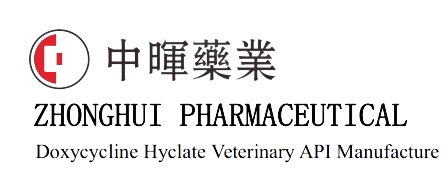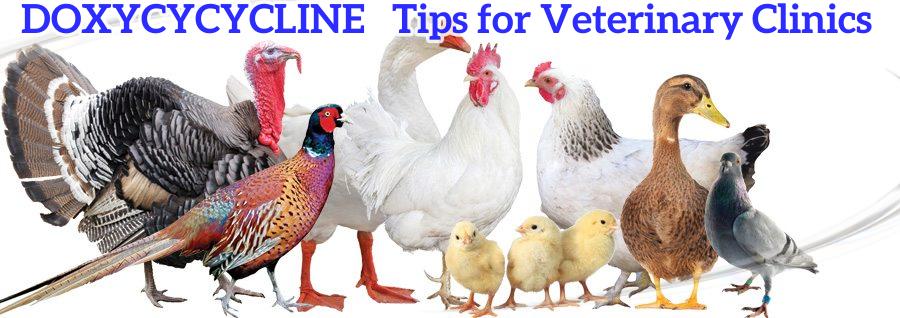Doxycycline Hyclate/HCL, commonly known as Doxycycline, is currently the most sensitive drug among tetracycline veterinary antibiotics. It is widely used in the clinical treatment of respiratory diseases in poultry. Typically, the winter and spring seasons are the peak periods for poultry respiratory diseases, making it the time of year with the highest demand for this medication.
In the poultry farming industry, the three most significant clinical diseases threatening the industry are viral and bacterial respiratory and gastrointestinal diseases in poultry. The losses these diseases cause to the poultry farming industry each year are truly incalculable.
Currently, the most common and prevalent poultry respiratory diseases in veterinary clinics include pullorum disease, fowl cholera, sinusitis, and infectious laryngotracheitis. Doxycycline hyclate is highly effective in preventing and treating diseases caused by pathogens such as Salmonella, Pasteurella, Staphylococcus aureus, Mycoplasma, and Escherichia coli. When combined with antiviral drugs, it also has good preventive and therapeutic effects on certain viral respiratory diseases.
Clinical Practice Summaries:
- Treatment of Laryngotracheitis: First, administer an emergency vaccination. Then treat with a combination of “Doxycycline hydrochloride + Isoprinosine + Shuanghuanglian,” supplemented with cod liver oil or vitamin C (VC), resulting in a definite effect.
- Doxycycline Hyclate: It is highly effective against pullorum disease, fowl cholera, and Salmonella infections.
- Treatment of Infectious Sinusitis in Poultry: Administer “Doxycycline hydrochloride + Sulfonamides + Tylosin” via drinking water, followed by “VC + Qingre Jiedu San” mixed with feed or “VC + Qingre Jiedu Oral Liquid” via drinking water for excellent results.
- Doxycycline Hyclate: It is particularly effective for treating concurrent respiratory diseases, Rickettsial, and Mycoplasma infections in poultry. It also helps reduce stress, has minimal side effects, low toxicity, and can be used in large quantities.
- Upper Respiratory Tract Infections in Poultry: When using Doxycycline hydrochloride, it’s best to combine it with sugar or a veterinary-prescribed sugar mixture. Sugar acts as a nonspecific immunomodulator, forming a protective layer in the chicken’s larynx and trachea, reducing irritation from toxic substances. This helps decrease mortality during treatment.
- Symptomatic Treatment with Doxycycline hydrochloride: Concurrent use of instant electrolyte multivitamins, concentrated cod liver oil, and VC can enhance the body’s defense mechanisms, effectively control the progression of the disease, and reduce mortality.
- Combining Doxycycline hydrochloride with Tylosin and Antiviral Traditional Chinese Medicine (Qingre Jiedu San): This treatment for respiratory diseases, combined with the immune-enhancing drug VC, has shown excellent results in treating infectious sinusitis in chickens.

